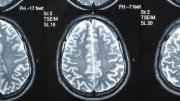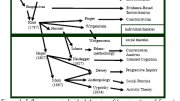
Online courses in criminal psychology are commonly included in Master of Arts (M.A.) or Doctor of Philosophy (Ph.D.) programs in forensic or criminal psychology. Introductory courses in criminal psychology also may be offered online to students pursuing undergraduate programs in a variety of topics, including psychology and criminal justice.
Distance education graduate programs in criminal or forensic psychology prepare students for careers as clinical psychologists, forensic case managers, jury consultants or court liaisons. Some of these programs can be taken entirely online, while others include on-campus components.
Description of Online Criminal Psychology Courses
The following course descriptions highlight the typical curriculum of the most common online criminal psychology courses.
Psychology and the Legal System Course
Students focus on the relationship between law and psychology, specifically through the lens of mental illness and criminal conduct in the legal forum. Ethics and the law, risk assessment screening and standards of legal competency in regards to insanity are also discussed.
Ethics in Forensic Psychology Course
This course explores ethical and legal conflicts and dilemmas that might be encountered in the legal system. Students also examine ways to resolve conflicts, while paying attention to forensic psychology standards.
Psychology of Criminal Behavior Course
Through this course, students are introduced to personality theories and learning styles in the context of criminal and violent behavior theories. Discussions focus on historical and modern theories of criminal behavior, including behavioral, cognitive, developmental and biological doctrines.
Maladaptive Behavior Course
Criminal psychology students learn about etiologies and definition of disorders using the Diagnostic and Statistical Manual of Mental Disorders. This course also looks at various methods of treatment for disorders prevalent in the criminal population.
Source: study.com
You might also like:




















